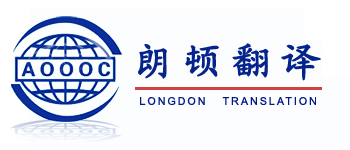英语的否定表达是一个常见而又比较复杂的问题。在表达一个否定概念时,英语在用词语法和逻辑方面与汉语都有很大不同,有的英语句子形式上是肯定的而实质上是否定的(以肯定表否定), 有的则形式上是否定的而实质上是肯定的(以否定表肯定)。
英语里有些从正面表达的词或句子,译文可从反面来表达,即正说反译法;英语里有些从反面表达的词或句子,译文可从正面来表达,即反说正译法。搞不清楚这些的话,翻译出来的句子有可能“不是人话”哦~

一、正说反译
英语里的“含蓄否定词”一般译为汉语的否定词:
名词
absence(不在,毫无)
neglect(不留心,没人管)
avoidance(不采取)
defiance(无视)
exclusion(排除)
freedom(通常和from连用,表”不…;无…的”)
lack(无,缺乏)
refusal(不愿,不允许)
如:
◆ Absence of competition makes for sloth.
没有竞争会导致懒惰。(absence此处反译为”没有,毫无”)
◆ She acted in defiance of my orders.
她无视我的命令行动了。
动词
fail to do(未做到)
miss(未打中,未见到,未达到;不懂,不理解,不明白;赶不上,抓不住)
forbid(不准)
ignore(不理会,不考虑)
hate(不想,不愿意)
上述词可以正着译,也可以反着译使句子更加通畅。
如:
◆ Many of Britain's beaches fail to meet minimum standards of cleanliness.
英国许多海滩连最起码的卫生标准都达不到。
◆ She narrowly missed hitting him.
她差一点没打着他。
◆ The hotel is the only white building on the road─ you can't miss it.
酒店是这条路上唯一的白色建筑——你不会看不见的。
◆ I hate to rush you but I have another appointment later on.
我真不想催你,但我稍后还有一个约会。
形容词
deaf (不听,置之不理)
blind(看不到,不注意)
absent(不在,不到)
poor(不好的,不幸的)
last(最不…的)
◆ He would be the last person who would do such a thing.
他最不可能干这种事情。
◆ He has turned a resolutely deaf ear to American demands for action.
他对美国提出的行动要求完全不理不睬。
◆ All the time I was blind to your suffering.
一直以来,我都没有意识到你遭受的痛苦。
二、反说正译
即英语中的否定词(一般为派生词)译为汉语的肯定。这种”形否意肯”的表达我们在上一篇也列举过,现在补充一些单个的词。
名词
◆ Dishonesty is ultimately self-defeating.
弄虚作假最终会自食其果。(dishonesty译为”欺诈,弄虚作假”)
◆ He may be able to nullify that disadvantage by offering a wider variety of produce.
他也许能通过供应更为多样化的农产品来抵消那一劣势。(disadvantage译为”劣势,缺陷”)
动词
◆ It took internal whistle-blowing and investigative journalism to uncover the rot.
内部检举和调查性报道揭露了这一腐败事实。
形容词
◆ The structure has an indefinite life.
这是一座永久性的建筑物。(“无限的”→”永久的”)
◆ It was an acutely uncomfortable journey back to London.
那是一次极其痛苦的返回伦敦的旅行。(“不舒服”→”痛苦的”)
◆ There was something about this which struck Carrie as slightly inconsiderate.
这话在嘉莉听来,有点轻率。(“不体谅人的”→”轻率的”)




